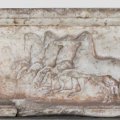UQ researcher Dr Guy Elston has begun groundbreaking investigations of the brain that could impact on the study of mental illnesses such as epilepsy, Parkinson’s disease and dementia as well as the brain’s recuperative ability following injury.
Dr Elston has been awarded The James S McDonnell Foundation 21st Century “Bridging Brain Mind and Behaviour” Research Grant worth around $920,000 to assist with the funding of his neuroscience research into how differences in the complexity of brain circuits and in different species, influence cognitive abilities.
“The cells in our prefrontal cortex, the site generally believed to initiate and modulate our thought processes, appear to be the most complex in our brains. “Furthermore, pyramidal cells in our prefrontal cortex are much more complex than those of other primates studied so far,” he said.
Dr Elston, who is based at UQ`s Vision, Touch and Hearing Research Centre at the School of Biomedical Sciences said his findings had wide-ranging consequences for the medical world as well as understanding the evolution of thinking, decision-making and other cognitive processes.
His research follows that of Professor Santiago Ramón y Cajal who, after a lifetime of investigations, concluded that the brain was not built of the same repeated circuit.
“I am now using these same methodologies and systematic approach to study dementia associated with Down syndrome and epilepsy. “I also hope to extend my findings to the study of the brain’s recuperative ability following peripheral injury such as a limb-loss, retinal detachment or stroke,” he said.
His findings also have clear repercussions for the study of age-related illnesses such as Alzheimer’s disease and failing memory. They fly in the face of the popular scientific belief that the mammalian brain is built of the same repeated circuit.
“As I see it, the immediate challenge is to convince many of my colleagues that what I have reported is in actual fact the case,” he said.
By forming collaborations with experts in Spain and Japan Dr Elston has been able to take results straight to some of the leaders in the field.
After completing his PhD at UQ in 1997, Dr Elston spent the next two years at the Cajal Institute in Spain on a CJ Martin Fellowship from the National Health and Medical Research Council (NHMRC) of Australia. Dr Elston’s research has so far confirmed Professor Cajal’s theory.
Dr Elston completed his PhD within two years of starting it, which is believed to be the fastest ever at UQ. In that time he also published nine papers on aspects of cortical organisation. He was recently awarded a NHMRC Career Development Award, acknowledged as the most prestigious fellowship available in Australia to a researcher of his experience. He said he was confident his research would produce significant results.
“More experiments are required to determine the underlying trends and extent to which the most ubiquitous cortical neurone, the pyramidal cell, has become modified to subserve its functional requirements,” he said.
For more information, contact Guy Elston on (telephone 07 3365 4108, email: g.elston@vthrc.uq.edu.au) or UQ Communications (telephone 07 3365 3367, email: communications@uq.edu.au).
.jpg)



